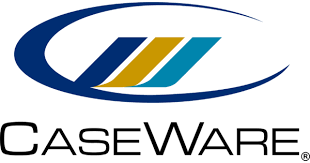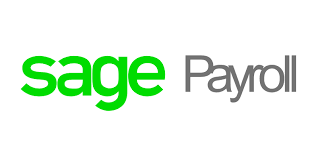Sole Proprietors
Trading as a sole trader is the simplest and easiest form of a business structure. It is relatively easy to set up and start to trade as a sole trader. You will need to register with SARS and get a tax number. You will then be required to prepare and submit a self assessment personal tax return every year that you operate as a sole trader.
There are a number of advantages and disadvantages of operating as a sole trader:
Advantages
- Simple – It is the easiest business structure to set up.
- Control – You are in total control of the business.
- Switching – should you decide switch to a limited it is a simple process.
- Confidential – you don’t need to submit your accounts to anyone else
Disadvantages
- Unlimited Liability – if the business gets into financial difficulties then you will be personally liable for all business debts.
- Raising Finance – unincorporated businesses (another name for a sole trader) can find it difficult to raise finance from banks.
- Tax – taxes are applied at individual rates using the tax tables
- Economies of Scale – sole traders can find it difficult to benefit from economies of scale which larger businesses benefit from such as discounts for bulk buying, additional finance and additional resources.
Companies
Key highlights of a company structure are as follows:
| Section | Features |
|---|---|
| Legal status | Company is a separate legal entitiy |
| The Number of Owners | May have one or more owners |
| Start-up capital | High start-up capital (Must be registered etc.) |
| Controlling Body | All the directors have shared control over the business. |
| Rules & Regulations | Complex |
| Liability | Shareholders have limited liability meaning that should the company become insolvent, creditors can’t claim from the shareholders in their personal capacity. |
| Business Registration | Company needs to be registered with CIPC (Companies and Intellectual Property Commission). Annual returns need to be filed with CIPC together with annual fee for continued registration. |
| Income Tax Implications | Business income and expenses will be declared on the Company’s tax return. |
| Income Tax Registration | The Company must be registered with SARS as an income taxpayer (the company is normally automatically registered for income tax when the company is registered) & as a provisional taxpayer. Therefore, there will be 3 tax returns due per tax year on which tax may be payable. This includes the 2 Provisional tax returns during the tax year (estimate figures) and the final annual tax return after the tax period (final figures). |
| Tax Rate | Company profits are taxed at flat rate of 28% (unless the company qualifies as a SBC or Micro Business registered for Turnover Tax). |
| Tax Returns | Company needs to file a Company Tax Return (ITR14) in its own capacity. |
| Dividends Tax | Dividends tax is paid by the company and levied at 20% on distributions to shareholders. |
| Financial Statements | Financial statements need to be compiled by an Accounting Officer and submitted to SARS when ITR14 is filed. |
| PAYE | Company must register as an “employer” with SARS and a director’s salary is subject to PAYE deductions. |
| VAT Registration | Requirement to register for VAT when turnover for a twelve-month period is R1m or more. |
Independent Contractors
Independent Contractors Included in Payroll
An independent contractor should only be added to the company’s payroll if their income meets the definition of remuneration. This will be the case if
- they render services mainly at the premises of the person by whom they are paid; and
- They are subject to the control or supervision of any other person as to the manner in which his or her duties are performed
The elements of the definitions of employee, employer and remuneration, therefore, need to be satisfied in order for an independent contractor to be deemed an employee. Employers are generally required to withhold PAYE and contribute SDL for all employees earning remuneration. The income of these independent contractors is, therefore, subject to PAYE (and SDL, if applicable) but not UIF and will be reported on their IRP5s under code 3616. For more information on these topics, please see the following section:
Independent Contractors Excluded from Payroll
True independent contractors are individuals who invoice clients for services rendered or goods supplied – there is no discernible employment relationship; thus, their income does not meet the definition of remuneration. Such contractors are not employees and, therefore, are not subject to employees’ tax or UIF and should not be added to the payroll system.
Personal Service Providers
Independent Contractors Included in Payroll copy
A personal service provider is a company, close corporation or trust where any service rendered on behalf of the entity to its client is rendered personally by any person who is a connected person in relation to such entity, and one of the following provisions apply:
- the person would have been regarded as an employee of the client, if the service was not rendered through an entity; or
- He person or entity rendering the service must perform such service mainly at the premises of the client and such person or entity is subject to the control or supervision of such client as to the manner in which the duties are performed; or
- More than 80% of the income derived from services rendered is received from one client or associated person in relation to the client
- The entity will, however, not be regarded as a personal service provider where such entity employs three or more unconnected full-time employees for core operations throughout the year of assessment.
Body Corporates
A Body Corporate is a legal entity made up of the registered unit owners that oversee the management and maintenance of communal areas within the scheme. The body corporate: maintains, manages and controls the common property on behalf of owners. decides the amounts to be paid by the owners to make sure the body corporate can operate. makes and enforces its own rules, called by-laws, which tell owners and other people who live in the scheme what they can and cannot do.
Section 10(1)(e) exempts from income tax the levy income of a body corporate, a share block company and an association of persons. It also provides an exemption for these entities of an amount up to a maximum of R50 000 for all their receipts and accruals other than levy income (the basic exemption).
Why Choose Us
When you partner with Procon Consultants, you are choosing the financial health of your business by getting premium quality financial and accounting services at highly affordable prices.
Fixed and Competitive Fees
- We are mindful of the fact that the cost of taking on our accounting services should not be greater than the benefit derived.
- Furthermore, we undertand that in business, knowing the total costs upfront is important before you commit to a product or service.
- The fee we quote for our accounting services, payroll services or bookkeeping services is the fee that you will pay.
- We always provide a fixed fee quote in advance of doing any work so that you know what you are paying.
- We have come up with a fee policy that aligns the fees charged with the size and scope of the work involved.
Online Accounts
- We use the lastest online accounting software and technology to prepare your books, to manage the statutory deadlines, and to give you complete and accurate financial reports. The use of technology in our processes enables us to work in real time with our clients on their accounting and tax matters.
Swift response time
- We will deal promptly with all emails and/or phone calls. We also aim to have draft accounts available within the agreed upon time after all the information has been supplied to us.
Client Testimonials
All the clients that have worked with us only have good things to say about us. Find out what some of our recent clients think about their experience with us:
-


I contacted Proconconsulting with regards to company registrations. The companies were registered within a few days and I was kept informed of the status and progress along the way. Victor provided me with a personalized service, which made an already daunting experience of being a first time business owner so much easier. I am a happy client and I highly recommend Proconconsulting.
Director Tessa’s Design Studio
-


When I initially started my journey as a small business owner, managing my finances felt like quite a daunting task. My decision to work with Victor was the best choice for my business. Not only was he able to professionally cater to my business’ current needs, but I am confident that his accounting services will cater to the business’ needs as it grows.
Director Director Muh & Mudh (Pty) Ltd
-


Quality work delivered in a timely manner?
A very insightful and a knowledgeable team offering a wholesome accounting product including tax and payroll?
Look no further for your accounting, tax and payroll services they are good at what they do.
Oscar Whacha Ca(sa) Ernst & young southampton uk
FAQs
If this is all getting confusing for you and you are looking for some clarity, take a look at our FAQs. If there are any more questions after this, feel free to contact us:
 Once i register my company, do i need to go to SARS to register for CIT (Corporate income Tax)
Once i register my company, do i need to go to SARS to register for CIT (Corporate income Tax)-
No, a tax number is automatically allocated to every new company upon registration. You will receive an SMS from SARS containing your tax registration details.
 When are my annual returns due?
When are my annual returns due?-
Companies are required to file annual returns within 30 business days after the anniversary date of its incorporation.
 How much tax will i pay on my new company
How much tax will i pay on my new company-
Companies in South Africa are currently taxed at 28% of the profit. However assessed lossses from prior years will be taken into account in determining the tax liability for a particular year end. You will need a qualified accountant to help you prepare a Tax computation inorder to calculate exactly how much tax you will be paying.
 Why should i prepare financial statements?
Why should i prepare financial statements?-
Besides mandatory compliance and the sourcing of funds, we at Procon believe that business owners should prepare their AFSs to aid themselves in their decision making processes.
 What is the difference between balance sheet and income statement
What is the difference between balance sheet and income statement-
An income statement measures the financial performance for a specific period, eg how much sales did you make, what were the total expenses? whereas a Balance Sheet shows your financial position at a specific date.
 Why do i need internal controls
Why do i need internal controls-
Having good internal controls in your business safe guards your assets and is good for your business. Internal controls are a set of systems, processes and procedures designed to mitigate the risk of financial loss due to fraud or error.
Partners We Work With
Since we have started Procon Consulting, we have become the go-to name for many of our partners. Some of our better-known partners include:





